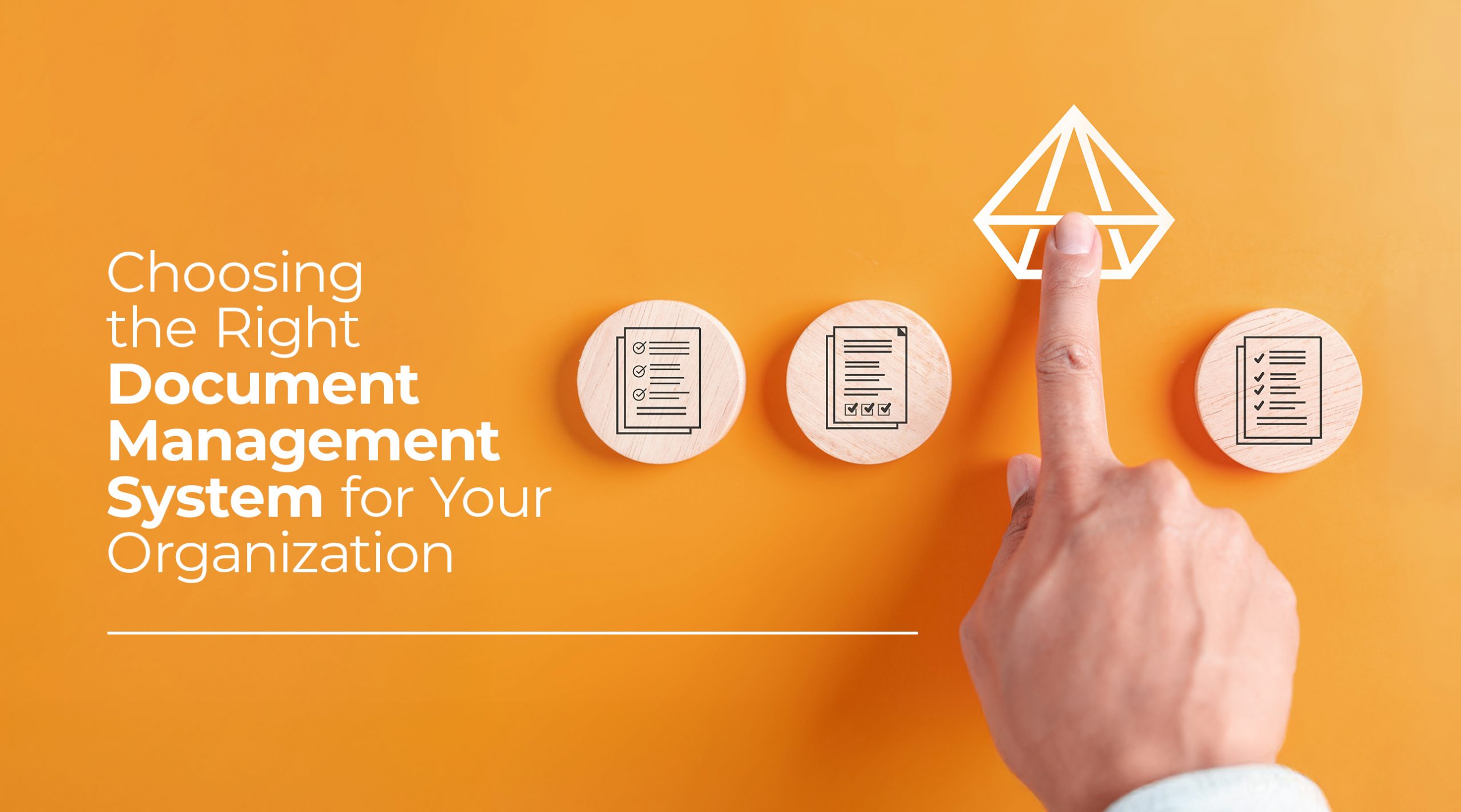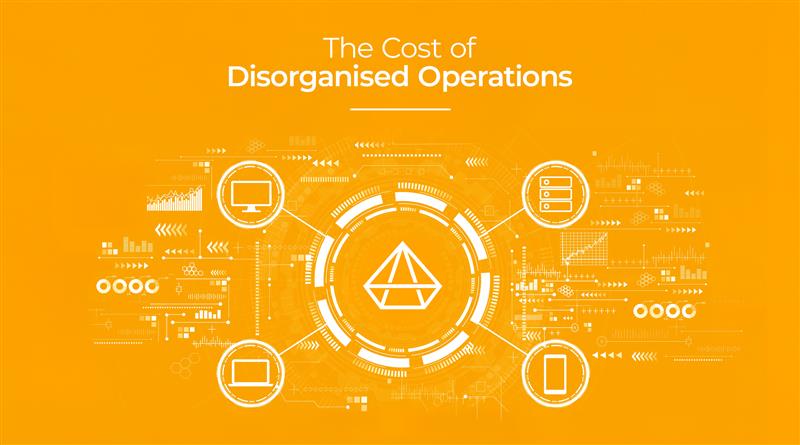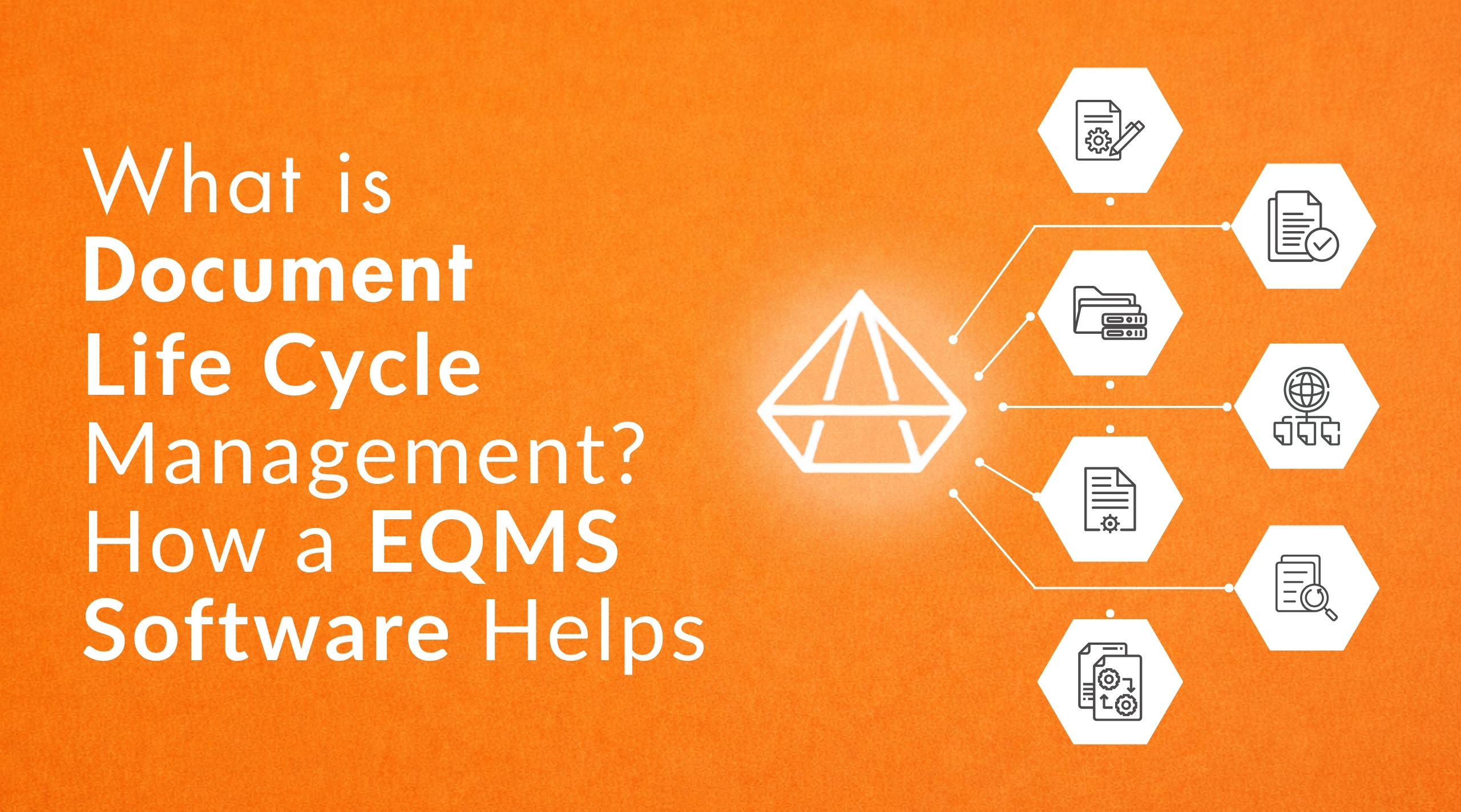Choosing the Right Document Management System for Your Organization

In any modern business, information is one of the most valuable assets. From contracts and certificates to training records and systems documents, the way an organization manages its data often decides how smoothly it runs. Yet many teams still find themselves buried under scattered files, multiple folders, and endless email threads. This is where a Document Management System (DMS) becomes not just useful but essential.
A DMS is more than a storage solution. It is the backbone that keeps critical documents organized, accessible, and secure. But with countless solutions available in the market, how do you know which one is right for your organization? Choosing the right system is not about picking the tool with the longest list of features. It is about finding the one that fits your processes, supports your people, and grows with your business.
Why Document Management Matters More Than Ever
Every organization, whether in manufacturing, automotive, pharmaceuticals, or services, is under increasing pressure to manage information responsibly. Missing records, outdated versions of SOPs, or delayed approvals can cause more than just internal confusion. They can lead to system compliance risks, failed audits, and even lost business opportunities.
Traditional methods like shared drives or spreadsheets—were once enough when document volumes were lower. But as teams expand, operations scale, and document control becomes difficult, these methods often fall short. They lack version control, real-time access, and structured workflows. A modern DMS solves these issues by acting as a central hub where every document is controlled, updated, and instantly retrievable.
Key Considerations Before Choosing a DMS
Selecting a DMS is not a one-size-fits-all decision. Different organizations face different challenges, and the system you choose should be able to address your specific pain points. Here are some of the most important factors to consider:
1.Ease of Use
A DMS only works if people actually use it. Complex systems with steep learning curves can lead to resistance from teams. Look for a solution that feels intuitive, where uploading, searching, and retrieving documents does not require technical expertise. The simpler the system is to adopt, the more likely it is to become part of your everyday workflow.
2.Centralized Access
The biggest advantage of a DMS is the ability to consolidate everything in one place. Your system should serve as a single source of truth where every employee can access the latest versions of documents without confusion. Centralized access also reduces duplication and ensures teams across departments are working with the same information.
3.Document Control Support
For organizations, management system compliance is non-negotiable. The right DMS should make audits easier by providing version histories, access logs, and approval trails. Features like automated reminders for document review dates or can turn compliance from a stressful scramble into a structured process.
4.Integration with Workflows
A DMS should not sit in isolation. It should integrate with your broader quality and compliance workflows. For example, when paired with audit management or non-conformance tracking, it ensures that the right documents are always linked to the right actions. This reduces manual effort and keeps everything connected.
5.Scalability
Your current needs may be modest, but the system you choose should be able to grow with you. Whether you are adding new plants, onboarding more teams, or aiming for additional certifications, your DMS should support this expansion without disruption.
6.Security and Permissions
Not all documents should be accessible to everyone. A robust DMS allows role-based access, ensuring sensitive files are only available to authorized personnel. Security features like encryption and controlled sharing are critical for protecting confidential business information.
Common Mistakes to Avoid
While searching for a DMS, organizations often fall into common traps. Recognizing them can save time and effort.
- Choosing based on features, not fit: More features do not always mean better. The right question is whether those features solve your team’s actual problems.
- Ignoring user adoption: A system that looks powerful on paper but frustrates users in practice will fail. Adoption is as important as functionality.
- Overlooking support and updates: A DMS should evolve with changing needs of the industry. Choosing a vendor that provides continuous updates and responsive support is crucial.
- Failing to plan the transition: Migrating from manual processes or scattered drives to a central DMS requires planning. Without proper onboarding, old habits can creep back in.
How Pyraman Approaches Document Management
At Pyraman, document management is treated as the foundation of organized operations. The system is designed to be simple enough for everyday users yet powerful enough to handle large volumes of records with ease. Real-time reminders ensure reviews and updates are never missed. Version control removes confusion, and role-based access keeps documents secure while making them easy to share with the right teams.
Most importantly, Pyraman’s DMS is built to scale. Whether managing a small library of files or thousands of documents across sites, businesses can rely on the same structured system to grow without losing clarity or control.
The Bigger Picture
Choosing the right Document Management System is not just an IT decision. It is an operational and strategic choice. A good DMS reduces risks, saves time, and improves accountability. But more than that, it builds confidence that every record is in place, every deadline is tracked, and every audit is met with readiness.
In an era where efficiency and compliance often decide competitiveness, a DMS is no longer optional. It is the silent partner that supports teams, strengthens processes, and prepares organizations for growth.
Every organization deals with documents, but not every organization manages them well. The difference between the two often lies in the systems they choose. A thoughtful decision today about your DMS can save countless hours and unlock smoother operations tomorrow. Pyraman was built with this philosophy at its core: that document management should be structured, reliable, and human-friendly. It ensures that the focus stays on innovation and delivery while the system takes care of the details in the background. For organizations considering a Document Management System, the choice is not just about technology. It is about enabling clarity, consistency, and confidence at every stage of growth.
Ready to experience a smarter DMS? Request a demo today and discover how effortlessly you can streamline your organization’s processes.





